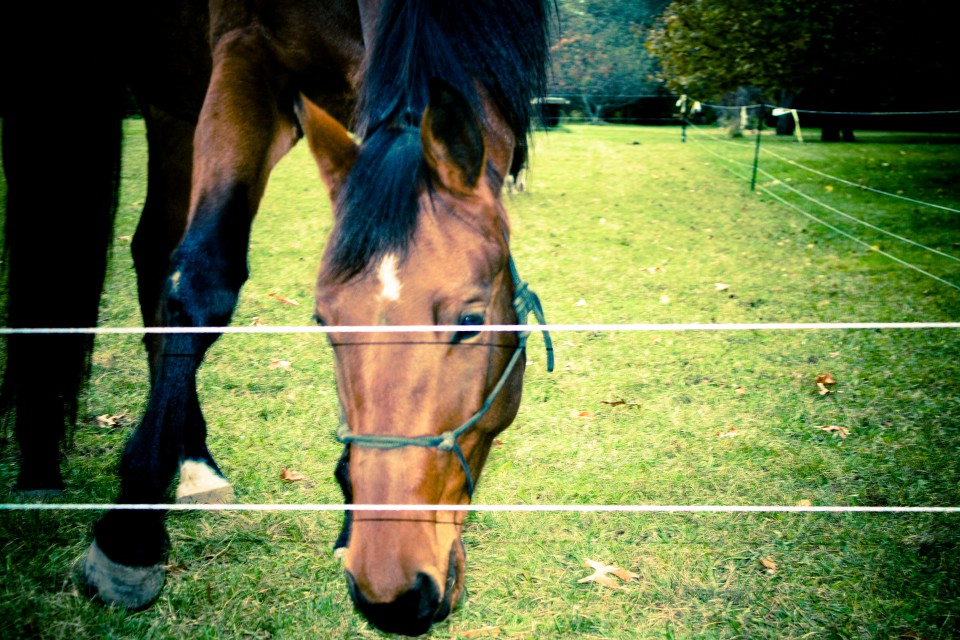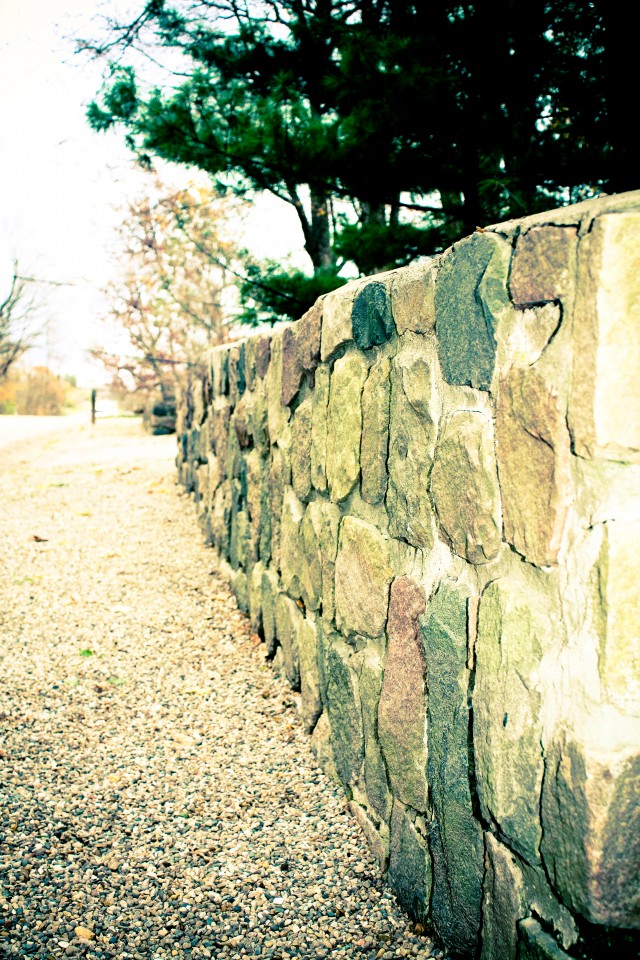When Boundaries are Hospitable
Good fences make good neighbors.
I didn’t realize that Robert Frost is actually questioning this neighborly proverb in his poem Mending Wall. As two men come together to mend a stone wall, it’s the neighbor who utters the possible wisdom. Though many forces threaten the existence of a fence — the earth below, animals, hunters — this neighbor seems certain that its these structures that make good neighbors. The man who speaks the story wonders if it’s true. He says, before I built a wall I’d ask to know what I was walling in or walling out, and to whom I was like to give offence.
There’s wisdom in that. Knowing what we’re walling in or walling out is the beginning to knowing if the wall is healthy and constructive, or limiting and confining.
Boundaries. We all have them.
These boundaries, they are physical. Our fences, our walls, our private spaces. They are the most obvious and most accepted. And they are the protective measures we put up to keep what is dear to us close.
These boundaries are emotional. The walls we erect between us and those we don’t trust. The lines we draw in how much we’ll expose our heart. The blocks built that keep us from remembering significant events or pain in our past.
These boundaries, they are social. The segregating we inherently do. The fear we have to cross over and engage what is different. The discomfort we experience when we face diversity. These social boundaries are the spoken and unspoken prejudices among races. The division created between tribes and ethnic groups. The unshared space among differing beliefs and faiths. The lack of converging between economic experiences.
For the most part, I view boundaries as restrictive. Deterring people from entering into one another’s lives. Nobody is boundary free, but I make efforts to draw as few as possible in my own life and space. My motivation comes from a deep desire to be hospitable. I want others to experience freedom in my space. The freedom to be present in my home without expectations. The freedom to be honest, without judgment. The freedom to be involved, rather than excluded.
In the way that Jesus created an alternative reality to a broken world, I want my home to be – not just a refuge – but a place that offers something different and genuine in this virtual world.
I say this not to uphold my values as more righteous. In fact, I fail at them all the time. And there are difficult consequences to this way of living that I continually face as my reality. And I wrestle with the ideas and challenge my own perspective often.
Though I boldly claim that boundaries separate us from each other and hinder vulnerability, I’m also aware of why we make them. We have instincts to protect ourselves. To create safe environments for those we love. We draw lines to keep us comfortable and content with where we are and who we’re with. I won’t say these motivations are wrong. But I want to acknowledge that some of our instincts are divine, of the spirit. And others are human, of the flesh. It’s important for us to discern the difference.
I recognize that God created boundaries. On his land, with rivers and mountains and oceans. He created spaces for his people, like the garden. Even the ark served as a protective enclosure for a particular people. At times he drew social boundaries, keeping his chosen people from intermingling with surrounding nations. And like everything else initiated by God, these are good.
God’s boundaries are purposeful, and usually temporary. His intentions are good, and he uses his boundaries for his glory, to accomplish his will.
But more than being a boundary creator, God has and always will be a boundary crosser. A boundary eraser. Jesus went to the places and people others wouldn’t go to. He walked over social lines and fellowshipped differently. He crumbled political and economic walls with his justice and grace. Jesus welcomed.
Jesus took risks. Socially, religiously and emotionally, he challenged the instincts and relational habits of mankind.
Just because the boundaries we make produce what we think is a positive outcome such as health, safety and comfort, it doesn’t necessarily mean it’s a good boundary. Many of our instincts have been shaped by cultural values. But God never promises that his ways will lead to health and safety and comfort. In fact, living out the Gospel among this world will surely be risky and wearisome, troubled and endangered. And if it’s not, then I question what it is we’re actually living out.
Drawing boundaries in our life and space ought not be our first response. Rather, we should be intentional and selective about where and when to draw them. We should consider what we’re walling in and walling out and to whom we’re likely to give offense. We should be prayerful and gracious as we make them. Prayerful and gracious as we cross them.
May God give us the grace to discern when our boundaries are healthy and glorify his purposes, and when they hinder us from engaging the brokenness around us.
In the same breath that I speak how boundaries hinder hospitality, I must offer the truth that sometimes in order to be hospitable the very thing you need is a boundary.
I offer some possible situations when boundaries are hospitable — to you, to those you live with, for those you care for, for those you minister to. You may think of others.
When you are weak or vulnerable to sin or a dysfunctional response in a particular person or place. And those influences shape you against the spirit of God.
During specific times when confinement and rest are needed in the filling of your spirit.
When your child needs a safe place to mend or grow.
When your marriage needs a slow environment so you have the time to engage one another.
When a negative force or influence seems stronger than you and protection is necessary.
When you are being taken advantage of, and separation is needed.
When you welcome someone to your home for a long term stay, and spoken expectations are necessary for the endurance of the relationship.
When your children aren’t mature enough or can’t be trusted with broader boundaries, you might need to adjust them.
When a husband and wife must wisely protect their relationship from attack with specific expectations regarding interaction with those of the same gender.
When a group needs exclusivity for a particular purpose and time in order to create a safe place for growing.
As you prayerfully draw these boundaries, do so with communication and accountability. Consider your motive and seek the Lord for guidance as you make them. Boundaries are healthy and productive when they are an intentional response tested by the spirit of God, rather than a reaction of our flesh. And some will need more than others. And that’s okay. May God give us the grace to know what we need in order to welcome people to share life with us.






